Shield Laws for Reproductive and Gender-Affirming Health Care: A State Law Guide
Shield Laws for Reproductive and Gender-Affirming Health Care: A State Law Guide
After the Supreme Court overturned Roe v. Wade in June 2022 and eliminated the federal constitutional right to abortion, many states enacted bans and further restrictions on abortion. In response, states seeking to preserve and expand access to abortion have passed shield laws: legal protections for patients, health care providers, and people assisting in the provision of certain health care in states where that care is legal from the reach of states with civil, criminal, and professional consequences related to that care.
Currently, through legislation or executive order, 22 states and Washington, D.C. have shield law protections related to reproductive health care, and 18 states and Washington, D.C. have shield law protections related to gender-affirming health care. The extent and type of protections offered by each state’s shield laws vary. Legislatively-enacted shield laws in 8 states explicitly protect provision of care regardless of patient location, which includes telehealth provision.
Shield Laws for Reproductive and Gender-Affirming Health Care: A State Law Guide provides analysis of each state's shield laws. The map below shows which states have shield laws. Click on a shield law state to learn more about its specific protections for reproductive and gender-affirming health care.
The State Law Guide was last updated in December 2025.
Shield Laws by Categories of Protection
The protections offered by each state’s shield laws vary. Shield laws may include: (1) Protections Against Out-of-State Investigations and Prosecutions (including specific protections against extradition, arrests, search warrants, subpoenas, witness summons, and state agency assistance in out-of-state investigations or prosecutions), (2) Protections Against Professional Discipline (including specific protections against adverse actions related to providers’ licenses, board discipline, and denial or restriction of facility privileges), (3) Protections Against Civil Liability (including specific protections against application or enforcement of another state’s laws or judgments in the shielding state’s courts, and availability of a “clawback” action to recover damages from litigation in another state as a result of providing, receiving, or assisting in the provision of certain health care), (4) Protections Related to Professional Liability Insurance and Health Plans (including specific protections against an insurer’s refusal to issue insurance, increase in premiums, or denial of coverage based solely on providing protected care and protections for contracts with health plans and insurers), and (5) Protection of Medical Information and Other Data Related to Reproductive or Gender-Affirming Care (including specific protections against disclosure of medical information, location data, providers’ personal information, and data held by businesses providing electronic communications or reproductive health apps). 4 states only offer certain protections by executive order rather than by legislation. The legislatively-enacted shield laws in 8 states explicitly protect provision of care regardless of patient location, which includes telehealth provision.
The chart and maps below show the types of protections offered in each shield law state.
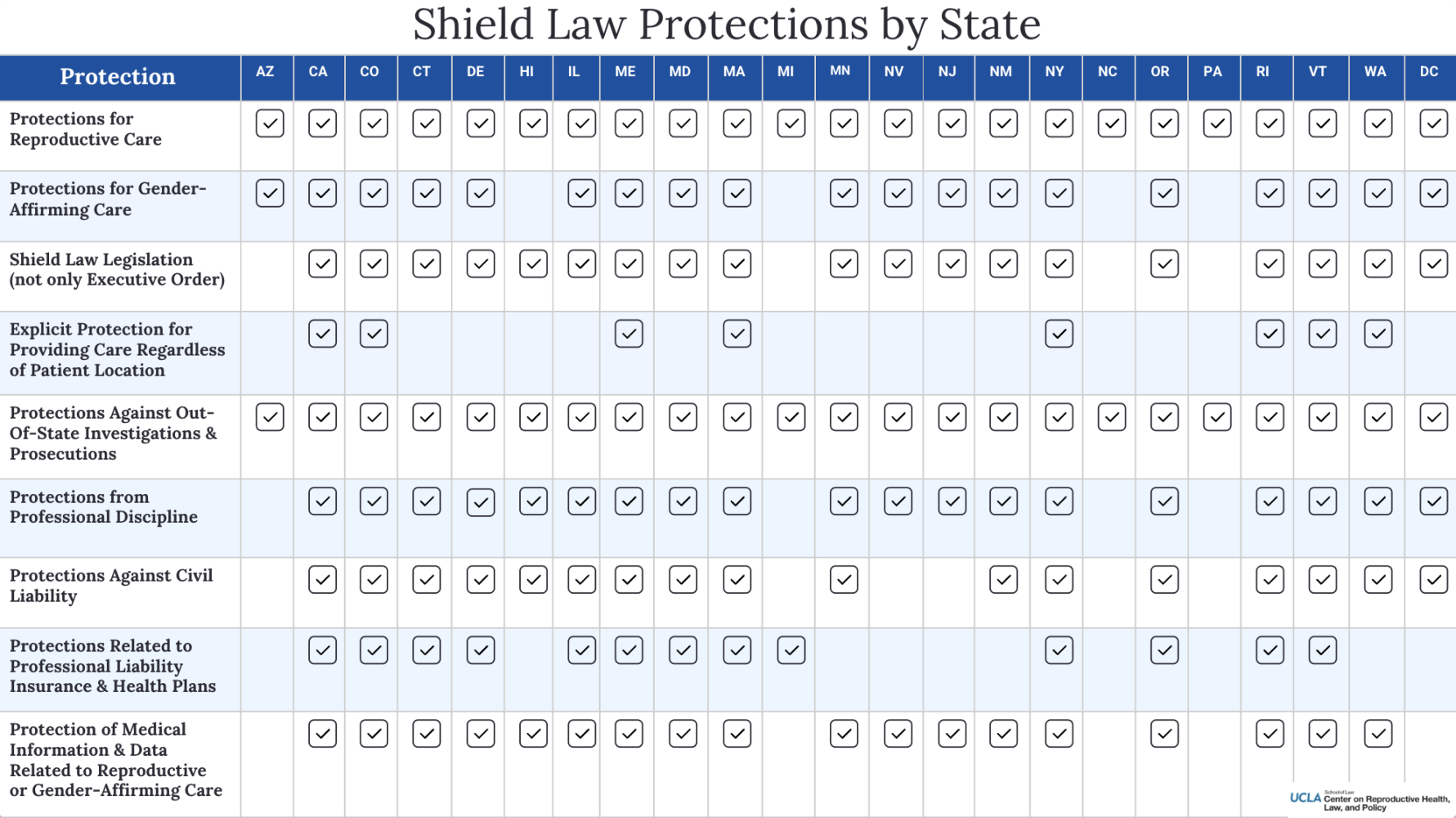
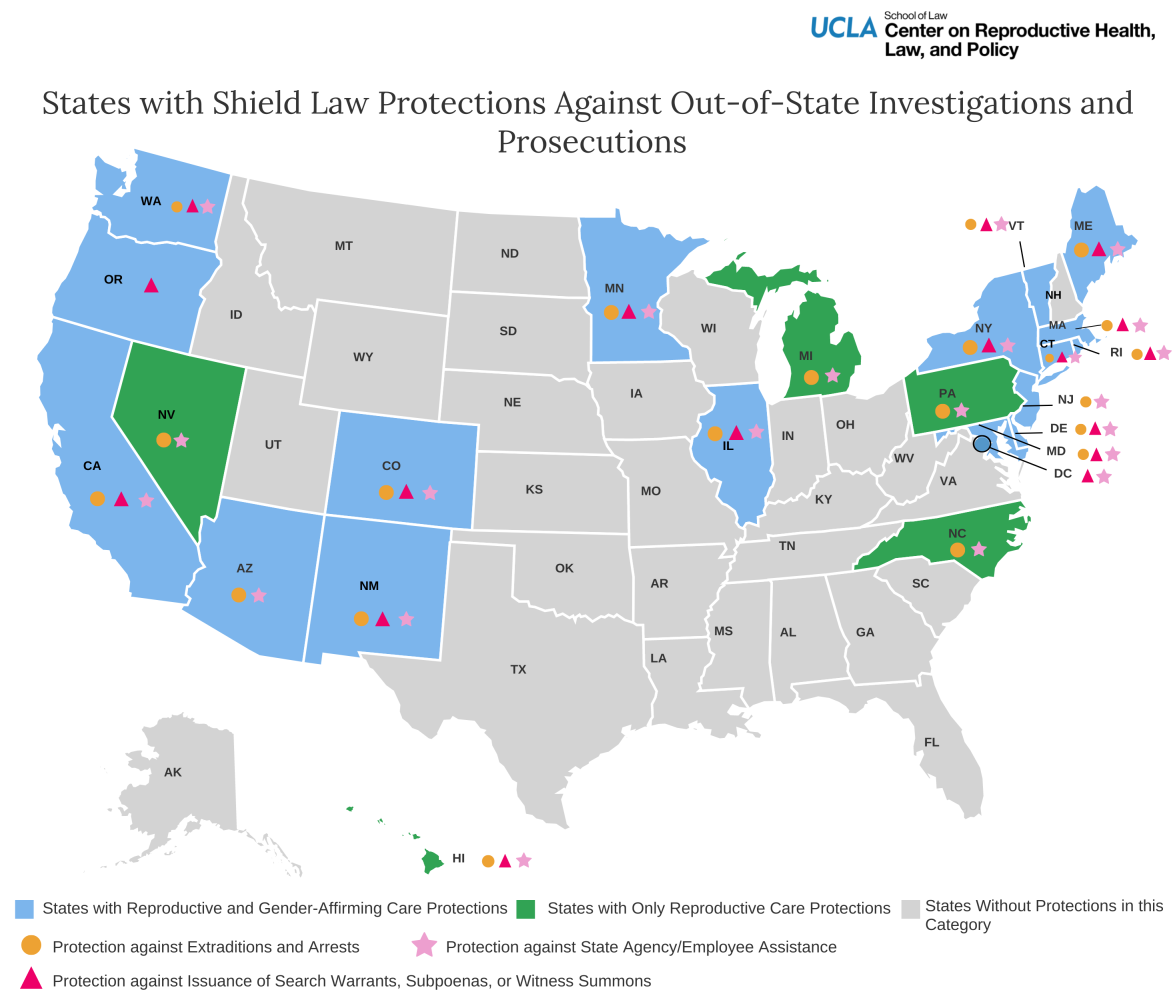
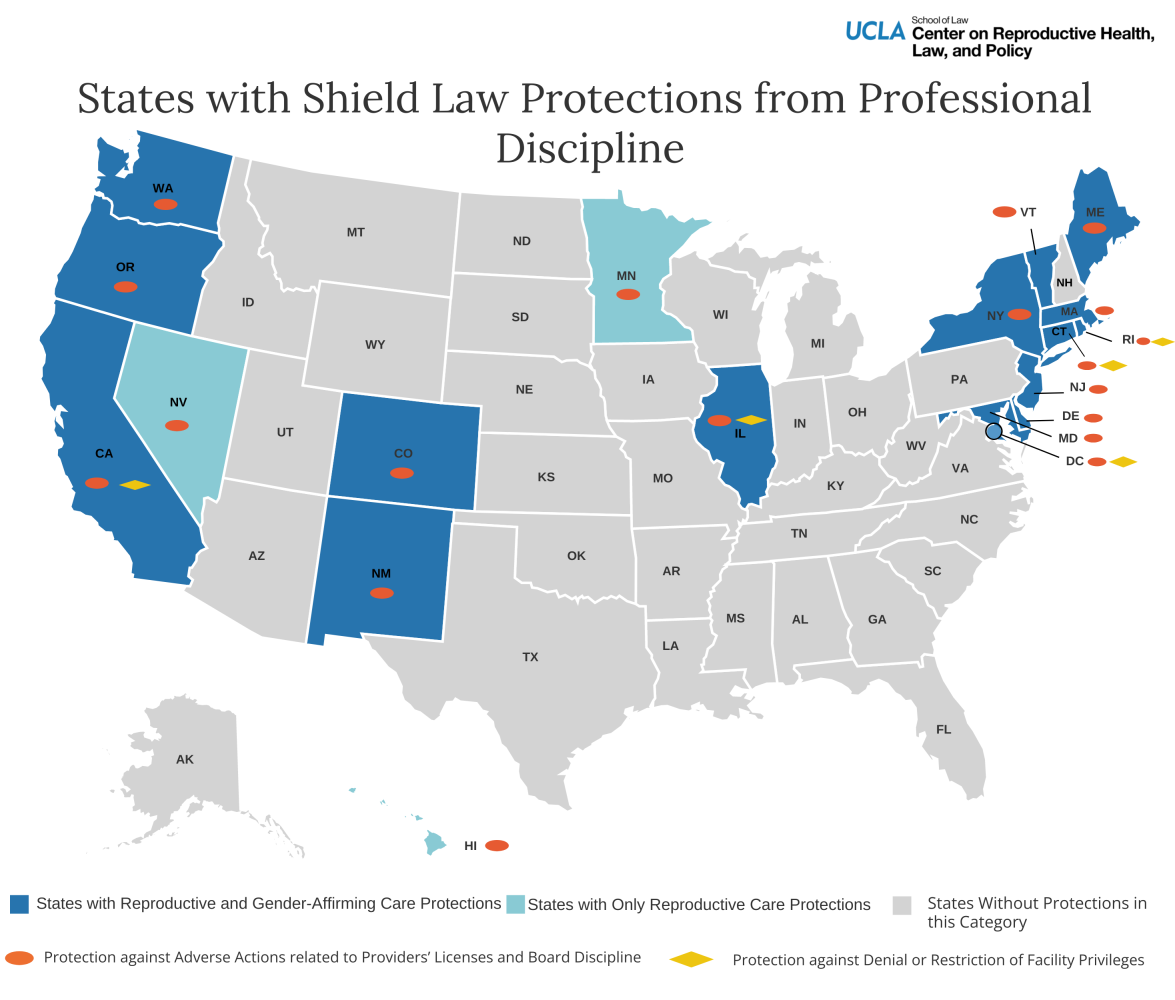
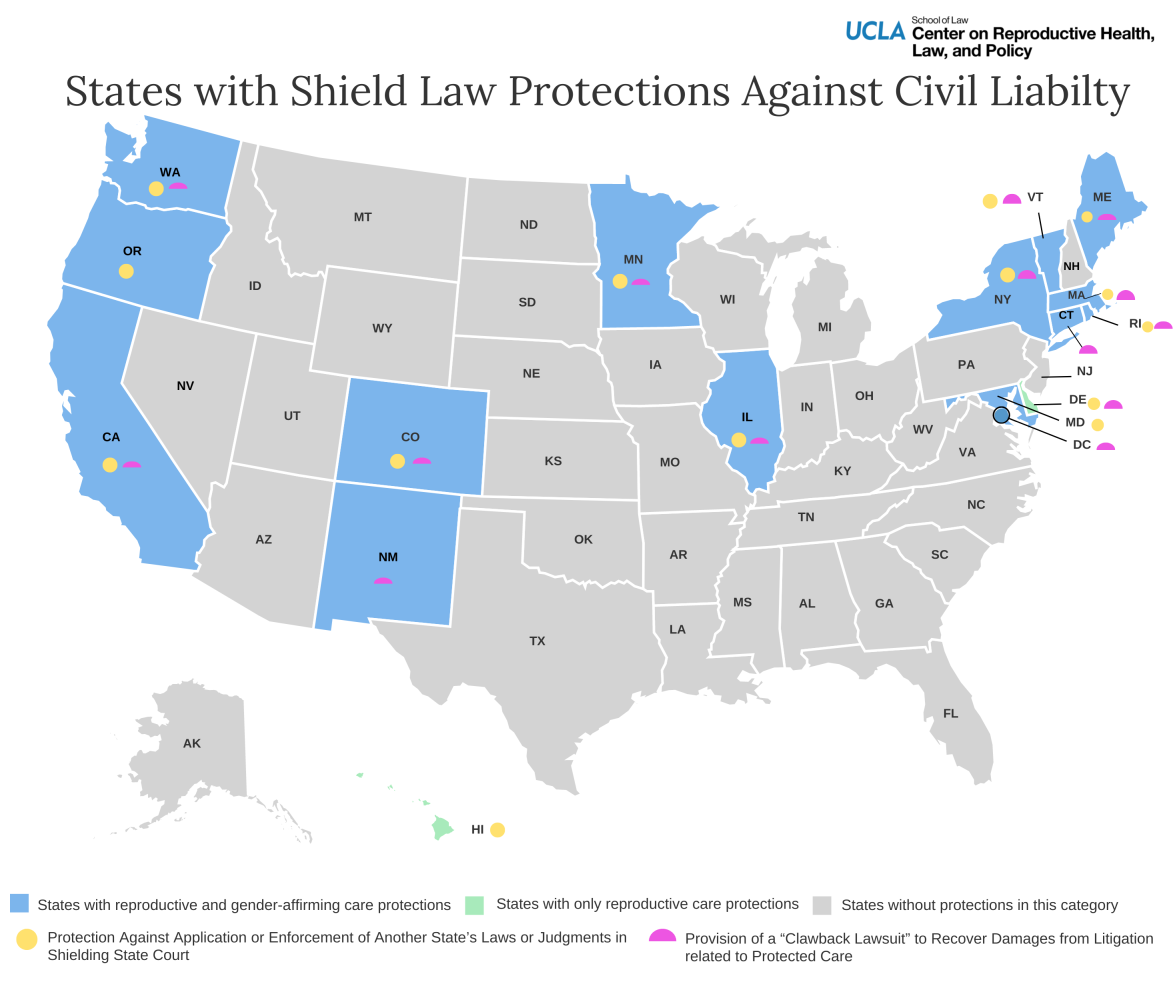
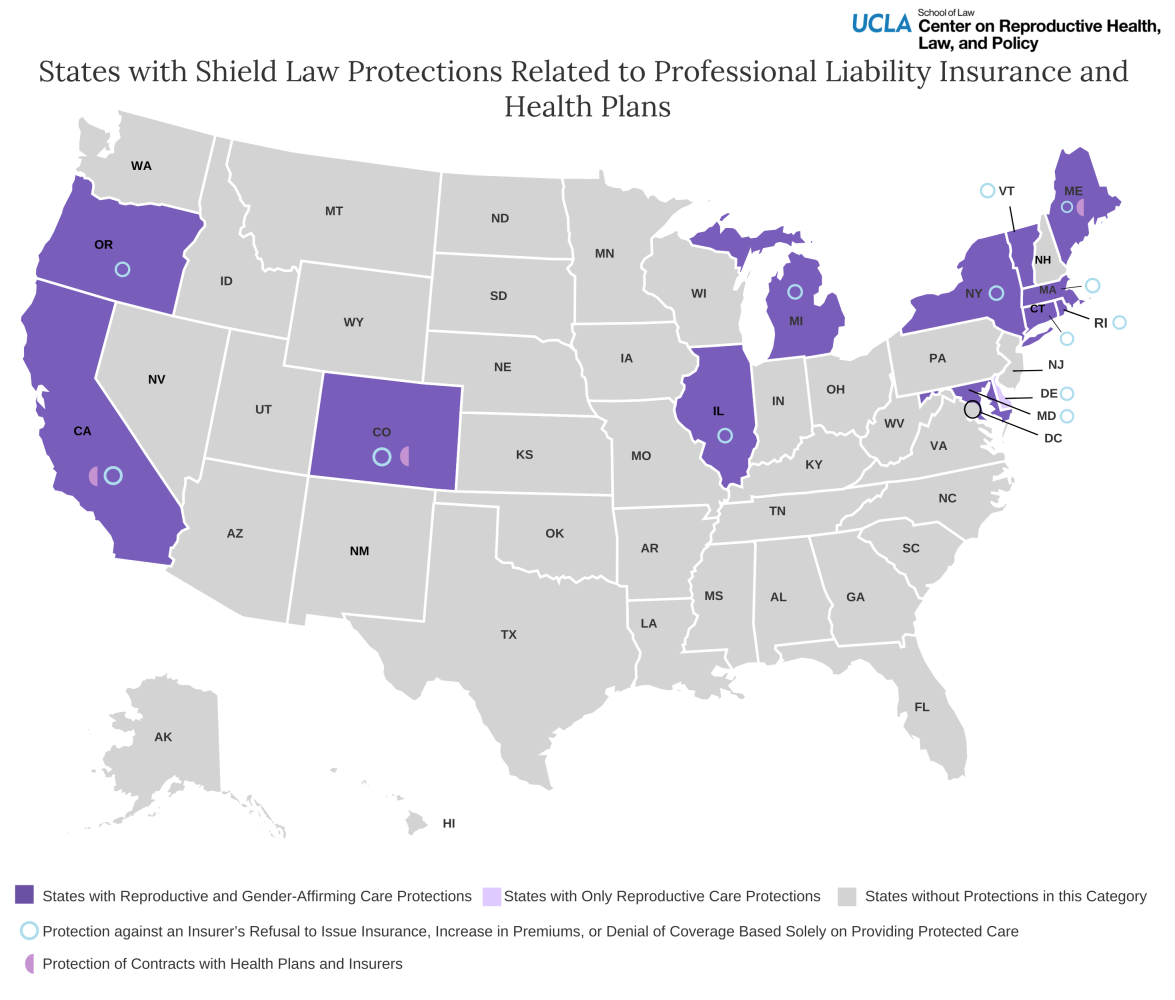
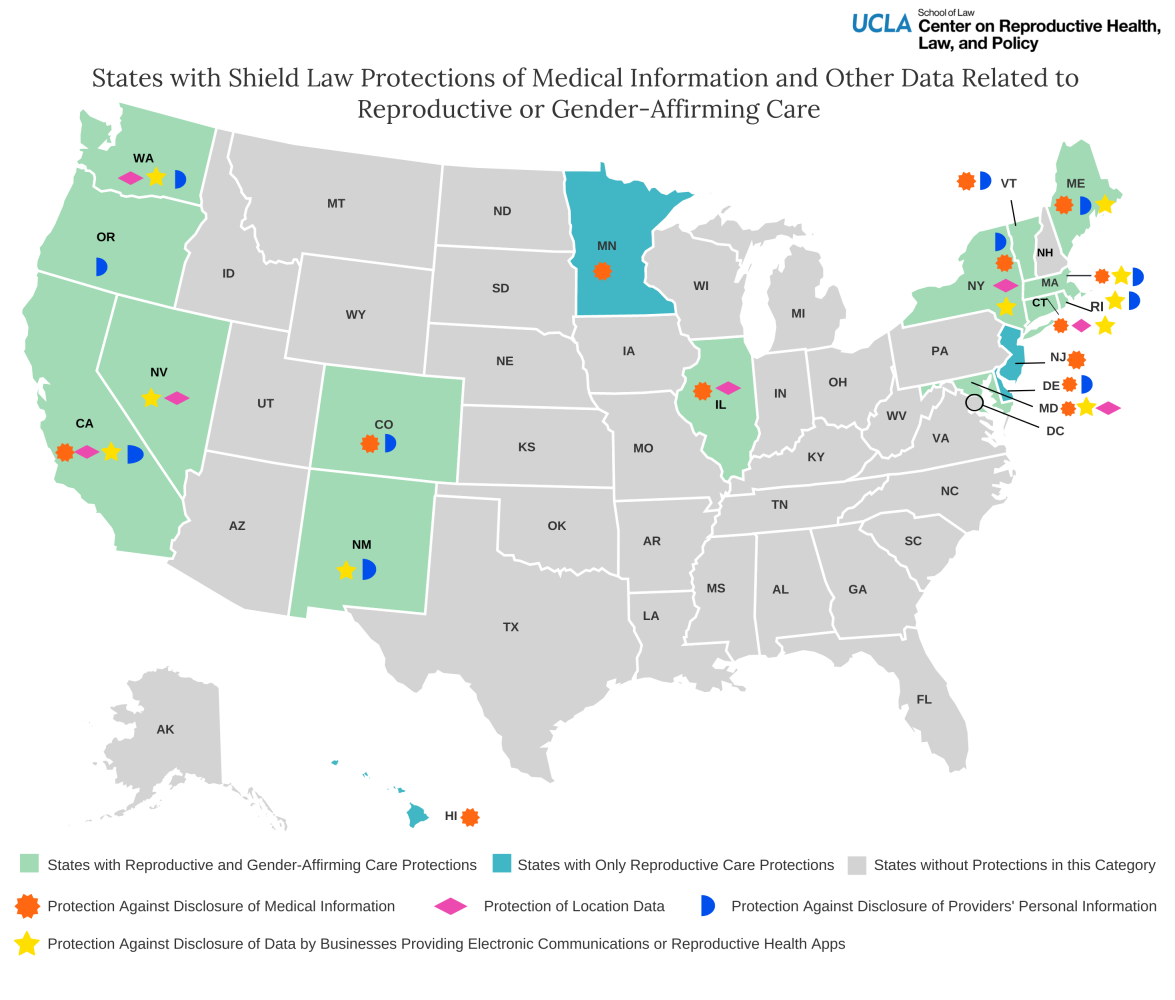
This State Law Guide is designed to provide a foundation on each state’s shield laws related to reproductive and gender-affirming health care. To receive pro bono legal assistance on questions related to the shield laws or other reproductive rights or justice issues, email larj@law.ucla.edu.
For general questions regarding the Center on Reproductive Health, Law, and Policy, email crhlp@law.ucla.edu.
